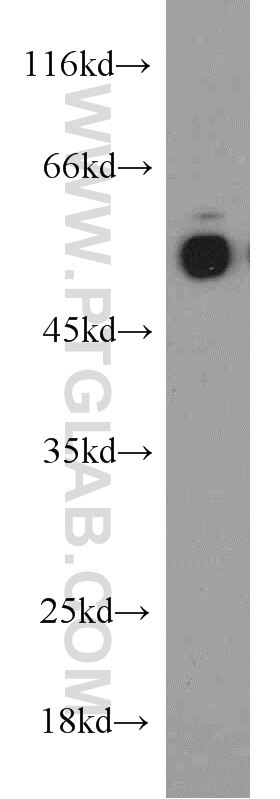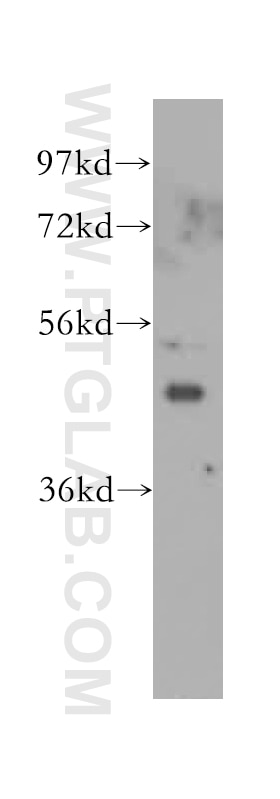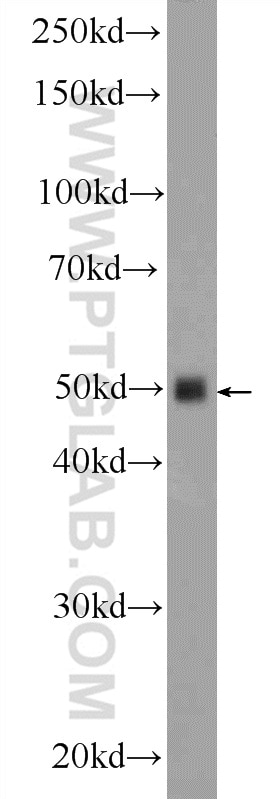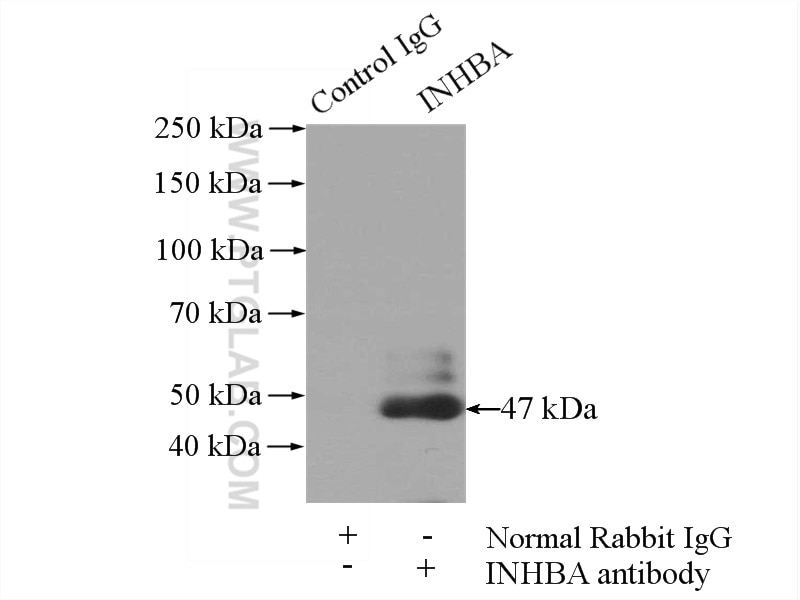Tested Applications
| Positive WB detected in | mouse brain tissue, PC-3 cells, rat brain tissue |
| Positive IP detected in | rat brain tissue |
Recommended dilution
| Application | Dilution |
|---|---|
| Western Blot (WB) | WB : 1:500-1:1000 |
| Immunoprecipitation (IP) | IP : 0.5-4.0 ug for 1.0-3.0 mg of total protein lysate |
| It is recommended that this reagent should be titrated in each testing system to obtain optimal results. | |
| Sample-dependent, Check data in validation data gallery. | |
Product Information
17524-1-AP targets Inhibin beta A-Specific in WB, IP, ELISA applications and shows reactivity with human, mouse, rat samples.
| Tested Reactivity | human, mouse, rat |
| Host / Isotype | Rabbit / IgG |
| Class | Polyclonal |
| Type | Antibody |
| Immunogen |
Peptide Predict reactive species |
| Full Name | inhibin, beta A |
| Calculated Molecular Weight | 47 kDa |
| Observed Molecular Weight | 47 kDa |
| GenBank Accession Number | NM_002192 |
| Gene Symbol | Inhibin beta A |
| Gene ID (NCBI) | 3624 |
| RRID | AB_2296035 |
| Conjugate | Unconjugated |
| Form | Liquid |
| Purification Method | Antigen affinity purification |
| UNIPROT ID | P08476 |
| Storage Buffer | PBS with 0.02% sodium azide and 50% glycerol, pH 7.3. |
| Storage Conditions | Store at -20°C. Stable for one year after shipment. Aliquoting is unnecessary for -20oC storage. 20ul sizes contain 0.1% BSA. |
Background Information
Inhibin βA (INHBA) is a ligand in the transforming growth factor β (TGF-β) superfamily. Inhibin βA forms a disulfide-linked homo-dimer known as activin A, which has been implicated in multiple biologic processes, including neoplastic progression. The inhibin βA can also bind the βB and α isoforms to form activin AB and inhibin, respectively.
Protocols
| Product Specific Protocols | |
|---|---|
| IP protocol for Inhibin beta A-Specific antibody 17524-1-AP | Download protocol |
| WB protocol for Inhibin beta A-Specific antibody 17524-1-AP | Download protocol |
| Standard Protocols | |
|---|---|
| Click here to view our Standard Protocols |










